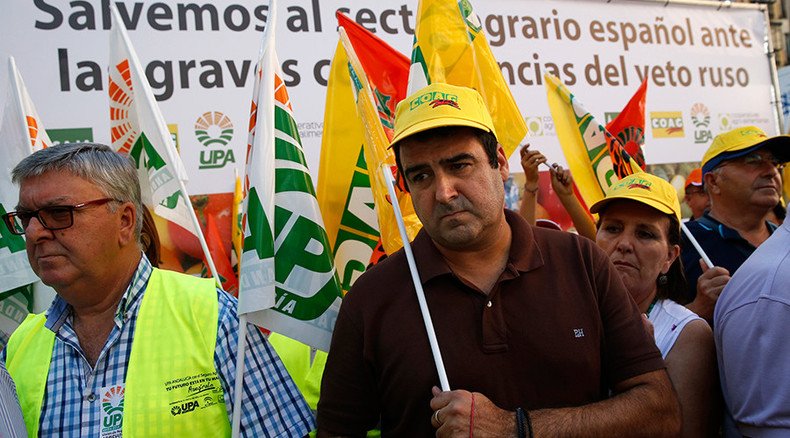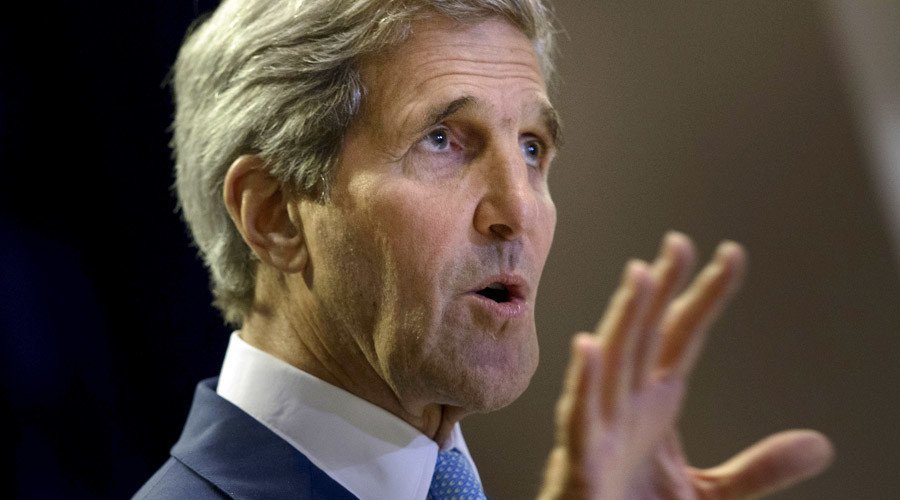‘Not friendly for US to bully EU into keeping anti-Russian sanctions’

There is a concern for businesses in the EU that lose a lot because of anti-Russia sanctions, but this is where you get a tradeoff between economic policy and self-interest in what really is political bullying by the US, former US diplomat Jim Jatras says.
Washington has recently expanded its sanctions against Russia over the situation in Ukraine. But US Secretary of State John Kerry has admitted that EU countries are less willing to punish Moscow. The comments came during a discussion on the Iran nuclear deal.
RT: John Kerry voiced concerns that Washington may lose European backing for anti-Russia sanctions. Is he revealing more than he intended to?
Jim Jatras: I’m not usually in a position of agreeing with Secretary Kerry, but on this point he is absolutely correct. Yes, maybe he did go overboard, he has been taking the same position if the Congress rejects the Iran deal that the same thing could happen on Iran sanctions. I think there is some legitimate concern in Washington that we are losing control of this process.
RT: What does the statement say about the relations between the US and EU?
JJ: I don’t think it says anything particularly good. Unlike the Iran sanctions that were approved by the Security Council, certainly none of the sanctions against Russia were approved by the Security Council. Other countries – China, India and so forth – do not agree with them, and I’m sure many people in Europe are saying to themselves “Why are we doing this?” And frankly, I think some people are wondering what kind of threats, pressure are we giving to our European friends – and not a very friendly thing it seems to me to force them to go along with sanctions that are clearly not in their interest.

RT: Even though several EU states may disagree on sanctions against Russia – how likely are they to actually block them?
JJ: So far, unfortunately not. And of course the key country here always turns out to be Germany. Germany to a large extent calls the shots; they are a kind of our junior hegemon in Europe, pressuring the other European countries to maintain this common front. None of the other smaller countries especially are willing to cross Germany and Germany is not willing to cross the US. We’ll have to see how far this goes as the lack of self-interest here becomes more and more damaging to them and to their economy, which is already pretty flat.
RT: According to recent figures, European countries, including Germany and France, are set to lose tens of billions of euros because of Russian trade restrictions. How much of a concern is this for them?
JJ: It is and certainly it is concern for businesses in Europe, but this is where you get a tradeoff between economic policy and self-interest in what really is political bullying and ideology coming from Washington, and so far it seems that willingness to be bullied and goodness only knows what kind of threats they deliver in private are carrying the day.
The statements, views and opinions expressed in this column are solely those of the author and do not necessarily represent those of RT.
LISTEN MORE:
The statements, views and opinions expressed in this column are solely those of the author and do not necessarily represent those of RT.












